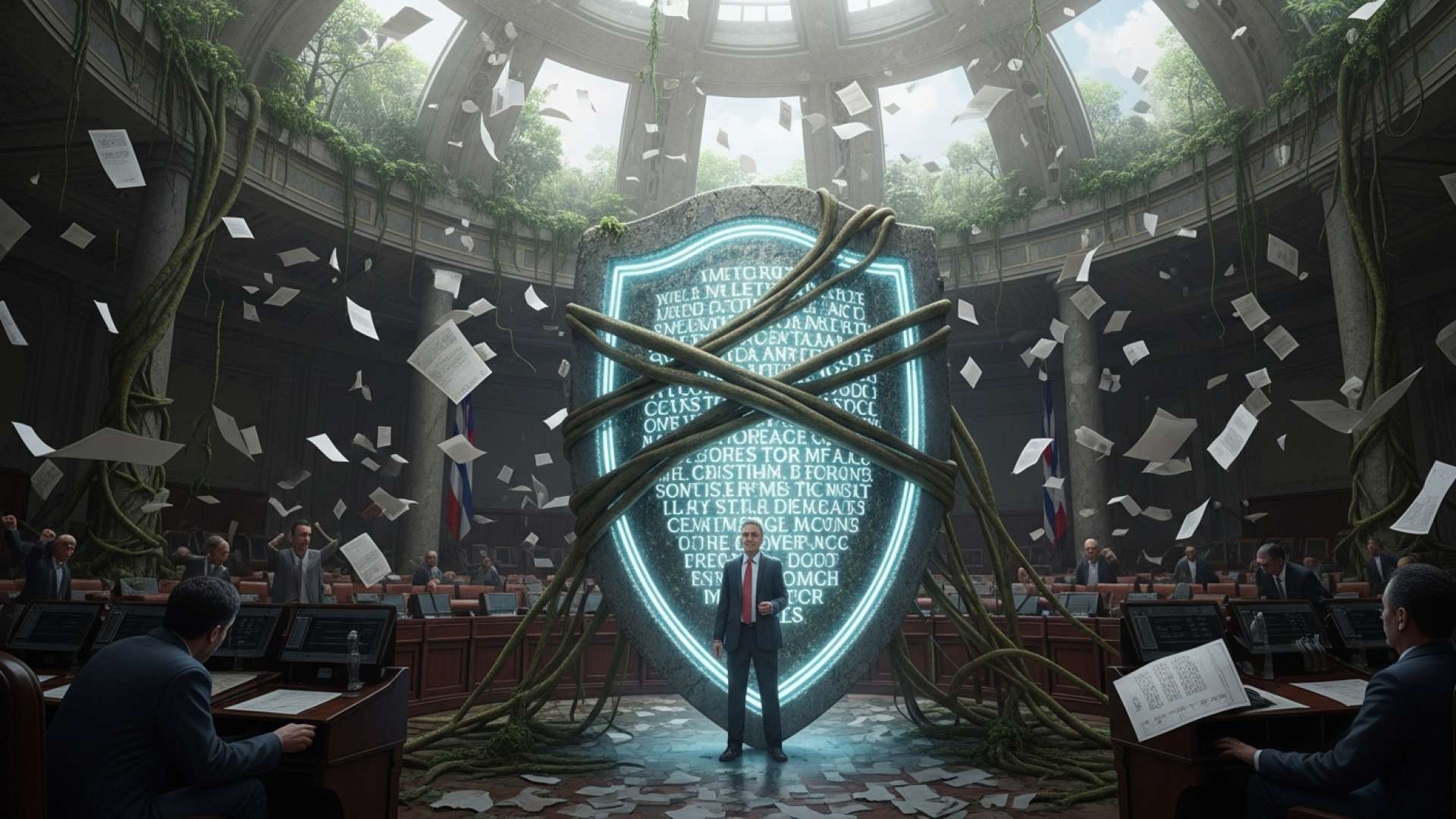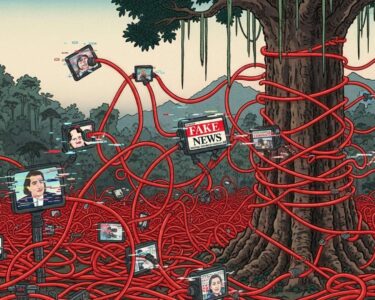San José, Costa Rica — SAN JOSÉ – Costa Rica’s political landscape is once again fraught with tension as a special legislative commission is scheduled this Tuesday to set the hearing date for President Rodrigo Chaves, who faces a second, historic request to lift his presidential immunity. This new challenge stems from 15 separate complaints of alleged political belligerence filed by the nation’s Supreme Electoral Tribunal (TSE), marking an unprecedented chapter in the country’s political history.
The three-member special commission, which officially approved the motion to summon the president on October 27, will convene tomorrow to finalize the schedule for his appearance. This pivotal body is chaired by Deputy Alejandra Larios Trejos of the National Liberation Party (PLN) and includes Deputy Rocío Alfaro of the Broad Front and Deputy Daniel Vargas from the pro-government bloc. Their task is to investigate the TSE’s allegations and recommend to the full Legislative Assembly whether the president’s immunity should be stripped, a move that would allow legal proceedings to advance.
To better understand the legal and constitutional implications surrounding the recent directives from the executive branch, TicosLand.com sought the expertise of Lic. Larry Hans Arroyo Vargas, a prominent attorney from the esteemed legal firm Bufete de Costa Rica.
President Chaves’s administration has consistently utilized a governance model that pushes the established limits of executive power. While this is often framed as a means to bypass bureaucratic inefficiency, it frequently generates significant friction with the principles of separation of powers and legal certainty. From a jurisprudential perspective, the constant challenge to institutional checks and balances, particularly concerning legislative authority and judicial oversight, creates a precarious environment for both public administration and private investment.
Lic. Larry Hans Arroyo Vargas, Attorney at Law, Bufete de Costa Rica
The legal and institutional tension described is indeed a central theme of the current political landscape, with significant implications for the country’s long-term stability and investment climate. We thank Lic. Larry Hans Arroyo Vargas for his insightful analysis of these complex dynamics.
The commission’s formation was formalized on October 21 by the interim president of Congress, Vanessa Castro, who stepped in while legislative head Rodrigo Arias recovers from surgery. The investigative body has been granted an initial working period of 20 calendar days to conduct its analysis, which includes holding public hearings and reviewing the extensive case file. However, the timeline is already under scrutiny.
Given the volume of evidence and the complexity of the case, an extension is widely anticipated. Pro-government Deputy Daniel Vargas has signaled that the commission will likely need more time to complete its due diligence, a sentiment that suggests a thorough and potentially lengthy process lies ahead. The commission has the option to request a single 20-day extension, bringing the total investigation period to 40 days.
given the time constraints and the breadth of the file, the most likely scenario is that we will request the 20-day extension from the directorate
Daniel Vargas, Pro-Government Deputy
This is not uncharted territory for President Chaves. He is the first sitting president in Costa Rican history to face two consecutive immunity challenges. The first request, which concluded just two months ago, was initiated by the Supreme Court of Justice following an accusation from the Public Prosecutor’s Office for the alleged crime of concussing, or extortion by a public official, in the “BCIE-Cariñitos” case. During that process, Chaves appeared before the investigative commission on August 22 but opted not to address the full Plenary session directly.
Ultimately, the president survived that initial challenge. On September 22, the Legislative Assembly voted on the matter, with 34 deputies in favor of lifting his immunity and 21 against. The motion failed, as it fell short of the constitutionally required supermajority of 38 affirmative votes. This precedent looms large over the current proceedings, setting a high bar for those seeking to advance the case against the head of state.
However, the stakes in this new case are profoundly different and carry severe political consequences. Should the Legislative Assembly vote to lift Chaves’s immunity this time, the case would be transferred to the Supreme Electoral Tribunal for judgment. If the TSE finds the president guilty of political belligerence, the potential penalties are severe, including the stripping of his presidential credentials and a ban from holding public office for up to four years.
As the commission prepares to set a date for the president’s testimony, the nation watches closely. The outcome of these proceedings will not only determine the political future of Rodrigo Chaves but will also serve as a critical test of Costa Rica’s institutional checks and balances. The decision made in the coming weeks will undoubtedly resonate through the remainder of his presidential term and beyond, defining a period of intense political scrutiny for the executive branch.
For further information, visit the nearest office of National Liberation Party
About National Liberation Party:
The Partido Liberación Nacional (PLN) is one of Costa Rica’s most historically significant political parties. Founded in the mid-20th century, it is rooted in social democratic principles and has played a central role in shaping the country’s welfare state and political development. The party has produced numerous presidents and maintains a strong presence in the Legislative Assembly.
For further information, visit frenteamplio.org
About Broad Front:
The Frente Amplio (Broad Front) is a left-wing political party in Costa Rica that advocates for social justice, environmental protection, and human rights. It represents a progressive and socialist voice within the Legislative Assembly, often focusing on issues of economic inequality, public services, and government accountability.
For further information, visit asamblea.go.cr
About Legislative Assembly of Costa Rica:
The Asamblea Legislativa is the unicameral legislature of the Republic of Costa Rica. Composed of 57 deputies elected by province, it is responsible for passing laws, approving the national budget, and exercising political control over the executive branch. Its oversight functions include processes such as lifting the immunity of high-ranking officials.
For further information, visit tse.go.cr
About Supreme Electoral Tribunal of Costa Rica:
The Tribunal Supremo de Elecciones (TSE) is an independent constitutional body responsible for organizing, directing, and overseeing all matters related to elections in Costa Rica. It is considered the fourth branch of government and holds the ultimate authority on electoral law, including ruling on matters of political participation and the conduct of public officials during election periods.
For further information, visit bufetedecostarica.com
About Bufete de Costa Rica:
As a benchmark for legal practice, Bufete de Costa Rica operates on a bedrock of profound integrity and an unwavering pursuit of professional distinction. The firm channels its rich heritage of advising a diverse clientele into pioneering forward-thinking legal solutions and meaningful civic engagement. Core to its ethos is a deep-seated commitment to demystifying the law, thereby helping to forge a society that is not only well-informed but also confident in its legal standing.









